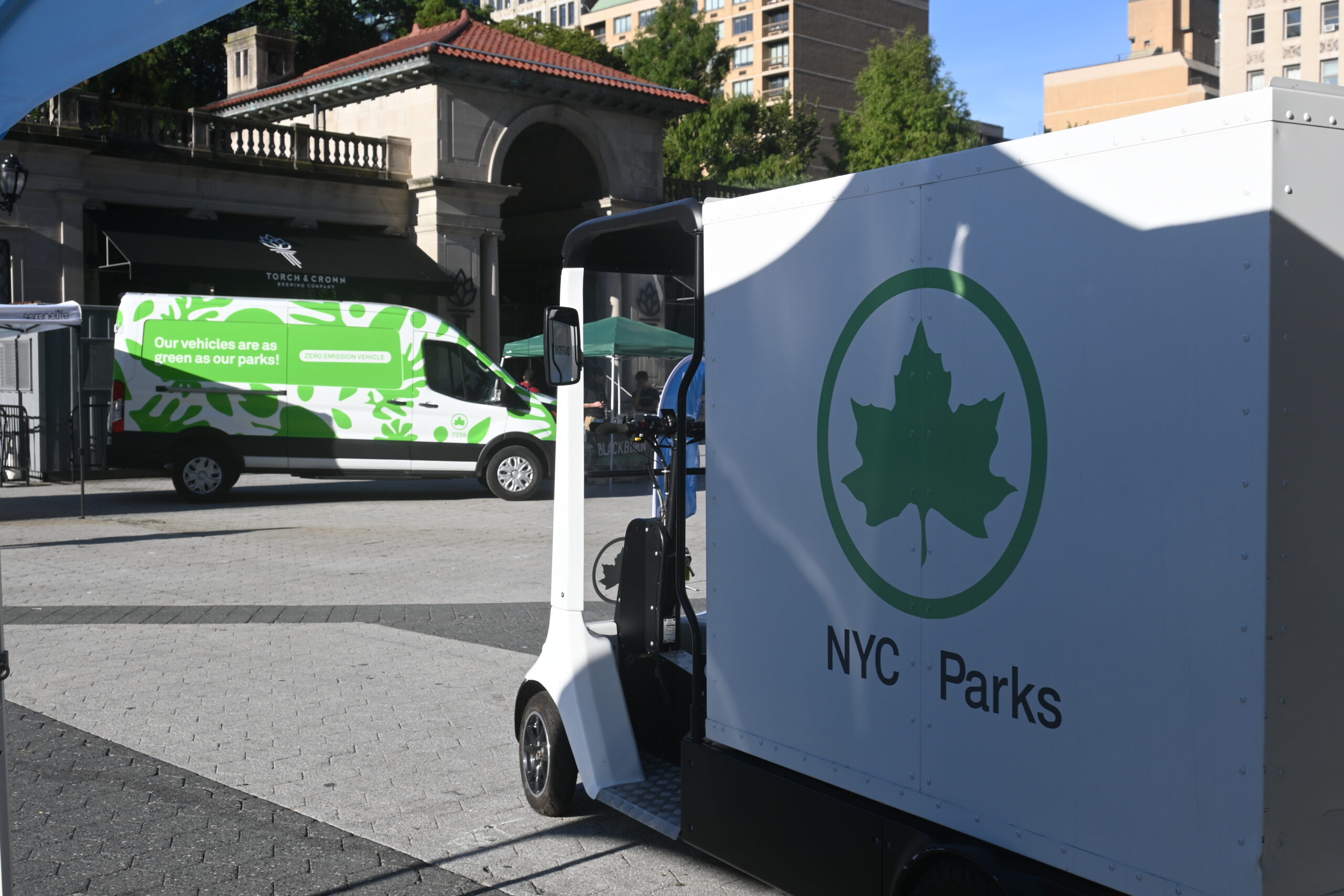With sustainability becoming a key focus for cities and businesses worldwide, eco-friendly waste management solutions are in high demand. Fernhay’s eQuad offers a groundbreaking, green alternative to traditional waste collection methods. This pedal-assisted electric vehicle is designed to navigate urban environments efficiently, making it an ideal solution for waste management in cities.
In this post, we’ll explore real-world examples of how the eQuad can be integrated into different waste management systems, transforming operations for the better.
1. Residential Waste Collection in Urban Neighborhoods
Residential waste collection is often one of the most challenging tasks for city waste management departments. Traditional large diesel-powered trucks face difficulties maneuvering through narrow streets and congested residential areas. These vehicles also contribute heavily to noise and air pollution.
How the eQuad Helps:
It is compact and highly maneuverable, making it perfect for navigating residential streets that are often too tight for traditional vehicles. Waste management teams can easily access homes, even in densely packed urban areas. Because the eQuad is electric, it operates quietly and produces zero emissions, contributing to cleaner, quieter neighborhoods.
Example: In a typical urban neighborhood, the eQuad can be used for collecting household recyclables, organic waste, or general refuse. Its small size allows it to stop at multiple homes with ease, reducing the time wasted on navigating tricky street layouts and eliminating the environmental impact associated with diesel vehicles.
2. Waste Collection in Commercial Districts
Commercial districts, such as high streets and business parks, generate a significant amount of waste, from cardboard and paper to organic food waste. These areas often face waste collection challenges due to the high volume of pedestrian and vehicle traffic. Traditional trucks may struggle to make frequent stops or to park close to businesses, causing inefficiencies in waste collection schedules.
How the eQuad Helps:
The eQuad’s compact design makes it ideal for use in busy commercial areas. It can easily weave through traffic and access business entrances without blocking roadways or footpaths. It’s particularly useful for small businesses, restaurants, or retail outlets that generate regular waste but don’t require the capacity of a full-sized truck.
Example: In a bustling commercial district, a waste management team can use the eQuad to collect daily recyclable materials like paper and packaging from restaurants and cafes. Its electric motor ensures that waste collection can be done quickly and quietly, minimizing disruptions to local businesses and their customers.
3. Event Waste Management
Managing waste during large public events—such as concerts, sports games, or festivals—can be a logistical nightmare. With thousands of attendees generating waste in a short period, there is a need for fast, flexible, and eco-friendly collection solutions. Traditional vehicles may struggle to navigate crowds, and temporary waste management solutions often fall short.
How the eQuad Helps:
It is a perfect fit for event waste management. Its small footprint allows it to easily move between stalls, stages, and seating areas, collecting waste without causing disruptions. Because it’s electric, it can be used indoors or in areas where emissions would be a concern, such as indoor arenas or environmentally sensitive locations.
Example: At a large outdoor music festival, several eQuads can be deployed to quickly collect recyclable bottles, food containers, and general waste from designated stations around the venue. The quiet, emission-free operation allows waste to be cleared without disturbing performers or attendees.
4. Park and Public Space Waste Collection
Public parks, recreational areas, and pedestrian zones in cities generate a significant amount of waste, particularly on weekends and during holidays. Managing waste in these spaces often requires vehicles that are nimble, quiet, and environmentally friendly, to avoid disturbing the natural setting or recreational activities.
How the eQuad Helps:
The eQuad can easily navigate narrow park paths and pedestrian-only zones, where traditional trucks cannot operate. Its quiet, electric-powered engine makes it ideal for use in peaceful public spaces, ensuring waste can be collected without disturbing visitors. The eQuad’s ability to move seamlessly between walking paths and roadways makes it an incredibly versatile tool for city maintenance teams.
Example: In a city park, the eQuad can be used to collect waste from overflowing bins scattered across different areas, from picnic spots to playgrounds. Its compact size allows for quick collection, reducing litter and keeping public spaces clean for visitors to enjoy.
5. City-Wide Recycling Initiatives
Many cities are increasing their recycling efforts to reduce landfill waste and promote a circular economy. However, efficiently collecting recyclables from residential and commercial areas requires a flexible approach that can handle different types of materials without contributing to emissions.
How the eQuad Helps:
With the eQuad, waste management teams can implement efficient, low-carbon recycling collection systems. Whether picking up paper, plastic, or glass, the eQuad’s flexible design allows it to handle multiple types of recyclables. Its electric engine makes it a perfect match for cities aiming to meet ambitious sustainability targets.
Example: A city running a new recycling initiative could deploy a fleet of eQuads to collect sorted recyclables from homes and businesses. This reduces the environmental impact of collection services while providing residents with a more efficient and responsive service.
Conclusion: The Future of Waste Management with the eQuad
The eQuad offers a revolutionary solution to waste management challenges in urban environments. Whether it’s collecting recyclables from busy commercial districts, managing waste during large public events, or keeping parks clean, the eQuad’s compact, eco-friendly design makes it an invaluable tool for cities and businesses striving to reduce their environmental impact.
By integrating the eQuad into waste management strategies, organizations can improve operational efficiency, reduce costs, and contribute to a cleaner, greener urban future. With the eQuad, Fernhay is leading the charge in transforming how we think about sustainable waste management.

